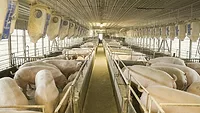Cilantro From U.S. and Mexico Test Positive for Cyclospora Parasite

Since 2014, the U.S. Food and Drug Administration (FDA) has been trying a new approach to produce sampling to assess microbial contamination in food commodities. The approach involves collecting a statistically-valid number of samples of targeted foods over a 12-18 month period, then identifying common microbial factors among them.
For fiscal year 2018, FDA had already been sampling fresh herbs, specifically basil, parsley, and cilantro, along with processed avocado and guacamole--all from both domestic and imported sources. The fresh herbs were chosen for sampling because they are eaten without having gone through any type of kill step (ie. cooking) to reduce or eliminate pathogens. Also, these items are grown low to the ground, which makes them susceptible to contamination. Initially, the sampling was to measure the prevalence of Salmonella and Shiga toxin-producing E. coli (STEC) in these herbs.
Recently, FDA added a new test to this sampling group: Cyclospora cayetanensis. The agency has a new analytical testing method for this parasite. Also, Cyclospora has caused outbreaks in the U.S. linked to imported produce, including basil and cilantro. According to FDA, although it is unknown exactly how food and water become contaminated with Cyclospora, prior outbreaks have been associated with produce grown under unsanitary conditions.
So far, two samples of cilantro that were to be imported from two different Mexico-based producers tested positive for Cyclospora. Due to these findings, FDA did not allow these cilantro shipments into the U.S. The agency also plans to take further action to prevent contaminated cilantro from those producers from entering the U.S. Both the U.S. and Mexico are working together to investigate the cause of the contamination, an effort made possible under the FDA Produce Safety Partnership with Mexico.
Contamination was detected on domestic produce as well. In July, a cilantro sample collected at the distribution level tested positive for Cyclospora. FDA then collected a positive sample from the farm in question.
This is the first confirmed evidence of Cyclospora in domestic produce, says FDA.
FDA did work with the farm and health officials to voluntarily recall any potentially affected products, and corrective actions were handed down to the farm. At this time, there is no evidence that this instance of Cyclospora contamination is in any way connected to any other U.S. outbreaks that have occurred over the last few months.
Looking for quick answers on food safety topics?
Try Ask FSM, our new smart AI search tool.
Ask FSM →
Other foods the U.S. has sampled thus far include sprouts, whole fresh avocados, raw milk cheese, cucumbers, and hot peppers.
Related articles:
FDA Testing Fresh Herbs, Avocados for Foodborne Pathogens
FDA Temporarily Bans Some Mexican Cilantro From Crossing U.S. Border
Fresh Produce Causes the Most Foodborne Outbreaks, Followed by Seafood
Sign up for Food Safety Magazine’s bi-weekly emails!
Subscribe to our podcast: Food Safety Matters!







